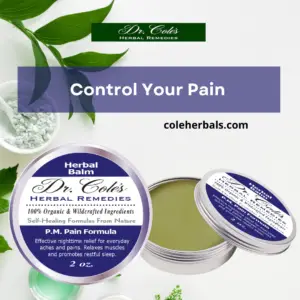
Jacob Halasowski is one of the participants of a peanut allergy clinical trial. Photo: CBS Pittsburgh
It is estimated that 15 million Americans have food allergies. When it comes to children, this condition affects 1 in 13 kids under the age of 18, and this age group has seen about a 50% increase in a little less than 15 years. The numbers keep growing, leaving many researchers wondering — why?
Peanuts are one of eight foods responsible for 90% of all allergic reactions (the other seven are eggs, milk, soy, tree nuts, wheat, fish, and shellfish). As the concern over allergies grew, many parents stopped giving their younger children peanuts and peanut-containing foods (and avoiding them during pregnancy for that matter). Unfortunately, their awareness and lifestyle changes did not stop the allergic reactions — that number continued to grow.
While 20% of children with peanut allergies outgrow it naturally, the unfortunate reality is that the other 80% do not, making life extremely difficult for them.
Recently, new research has come out showing that we may be dealing with peanut allergies all wrong. Instead of avoiding peanuts, the solution may be to introduce peanuts into the diet slowly, but at an early age.
The research results show that giving children peanuts before the age of one may prevent them from developing peanut allergies. The rate of peanut allergies was 10 times lower in children who tried peanuts early in life.
“We anticipate that if this works as well as we think it will, it will drop not only the incidence and prevalence of peanut allergy but also the host of problems that come with having a food allergy,” said Dr. Matthew Greenhawt, chair of the food allergy committee of the American College of Allergy, Asthma and Immunology.
This is not the first study of this kind.
In 2008 The Journal of Allergy and Clinical Immunology published a study that concluded: giving infants peanut reduces the risk of a peanut allergy.
There also have been other studies showing that similar principles to successfully work: exposing children to peanut or peanut allergens to train the body to process peanuts normally.
Warning: this is not something you should try at home without medical guidance and supervision. But these types of studies and clinical experiments do take place across the U.S. if you are wanting to participate in one. Consult a doctor first if so as this is not intended to be medical advice. Read our full disclaimer here.
Wearing Peanut Allergen Patch to Beat the Allergy
The UPMC Children’s Hospital of Pittsburgh is conducting a study to investigate how a Viaskin Peanut 250 microgram drug patch can prevent further peanut allergies from happening.
The study has shown potentially great benefits, especially for children, and the trial is still open to participants.
The drug has not been approved by the FDA, and besides the main ingredient, peanut protein, it is not yet known if the drug has any side effects or toxic ingredients (something to be especially careful of with any drug).
What is important is the way it works. By introducing peanut protein, an allergen, slowly to the subject, peanut allergy can potentially disappear.
Knowing this, there is an abundance of research suggesting that completely natural alternatives that can be possible.
Oral Immunotherapy: Eating Peanut Protein Daily To Treat Peanut Allergies
Another medical trial, (which should be not be attempted without medical supervision, by the way), had a more natural approach. Instead of wearing a patch, children with life-threatening allergies were given peanut protein to eat every day in order to overcome the peanut allergy.
While some participants had mild side effects during the trial such as gastrointestinal symptoms, by the end of it, 84% of 99 children who took part could eat at least five nuts without having any kind of allergic reaction.
While this does not cure allergies completely, it gives the subject a peace of mind that if they are accidentally exposed to peanut, they will not suffer a reaction.
“I don’t have to worry when I go out with my friends about what I’m eating and where it’s come from. It has been a massive problem for me since I was a small child and I’m so thankful I’m getting rid of it,” said Thomas Baragwanath, 16.
The study’s results were published in The Lancet journal.
Similar trials can be found Cambridge Allergy, a spin-off company from Cambridge University Hospitals.
Related Reading: Researchers in Australia Say They May Have Found a Simple Natural Cure for Peanut Allergies in Kids (Probiotics)
Thanks for installing the Bottom of every post plugin by Corey Salzano. Contact me if you need custom WordPress plugins or website design.




